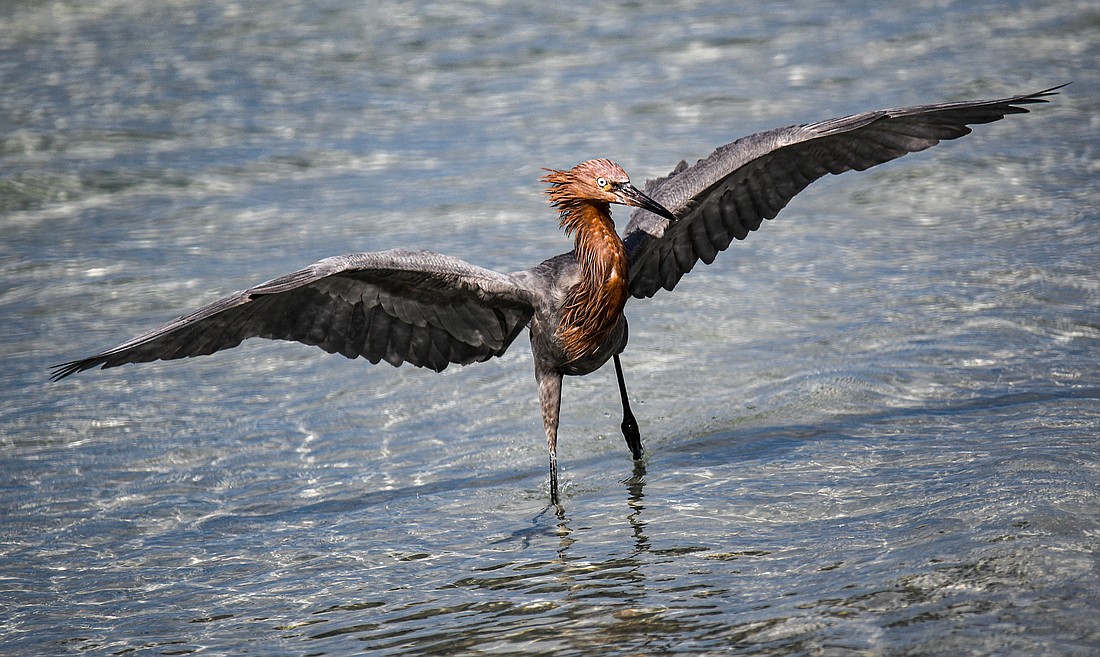- January 28, 2026
-
-
Loading

Loading

Though eye-catching with its shaggy reddish neck and dramatic foraging style, the reddish egret is the least common heron species found in North America. Strictly a coastal dweller, you'll only spot this medium-sized wading bird on open marine flats and shorelines.
Reddish egrets literally dance for their supper. To feed, once they've spotted small fish in shallow water, they zigzag around, running, jumping then lurching after prey.
They often hold their wings over the water while hunting, using a technique known as “canopy
feeding.” The shade provided by their 4-foot wingspan reduces the sun's glare, allowing for better visibility.
Reddish egrets usually feed alone, as the proximity of other birds would likely cramp their style by getting in the way of their wide ranging moves. Unlike many other wading birds, reddish egrets need clear water and solid sand for foraging and only feed their chicks fish captured in saltwater.
Therefore, their habitat range is very restricted. A highly desired target for plume hunters in the 19th century, they were virtually killed off in Florida, where no reddish egrets were seen for decades until the return of one breeding pair in the late 1930s.
Never an abundant species, reddish egrets have been very slow to recover and are a state-designated threatened species. Considered a sentinel species, signaling the health or frailty of their very specific ecosystem, their struggle to thrive is concerning, and is due to our impact on the restricted coastal habitat they rely on for survival, through development, pollution and recreation.
To help reddish egrets, restoring and protecting the health of our coasts is critical, for their sake, and for ours.